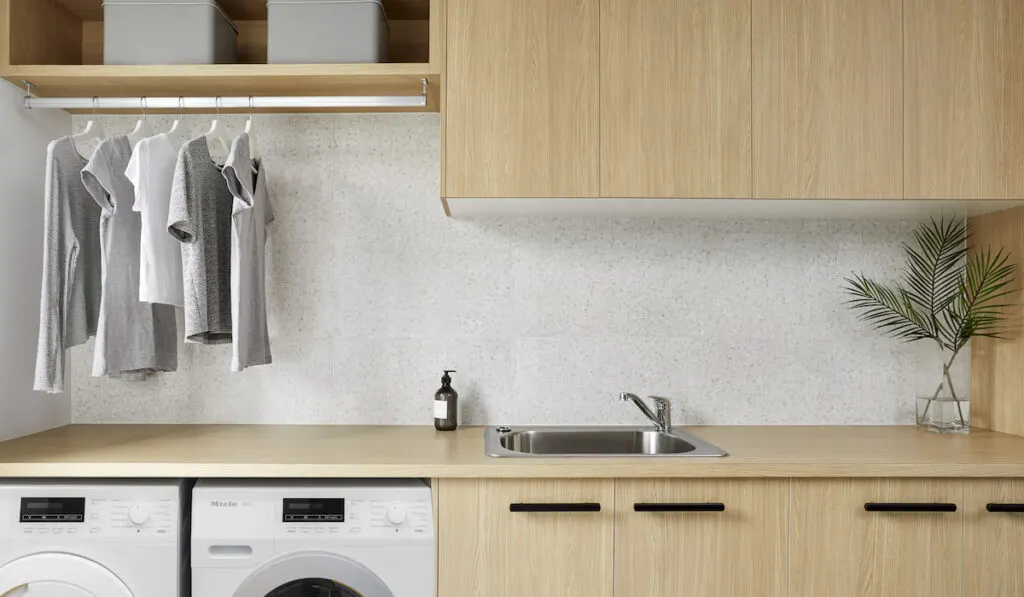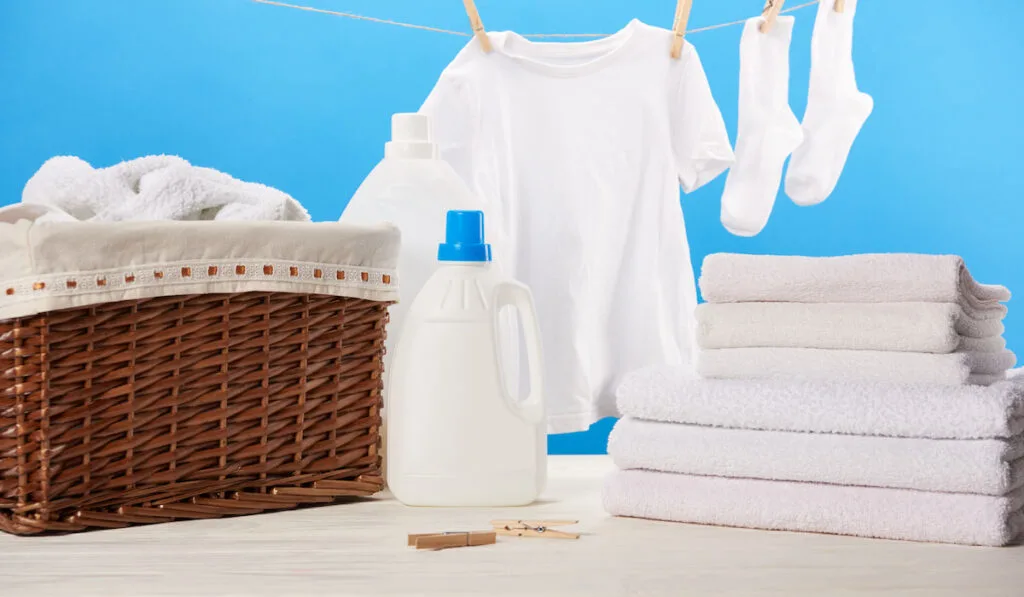Laundry chutes are no longer a standard amenity seen in many homes or businesses these days, but they are not illegal in most places.
However, there are fire laws that must be followed in order to have them installed at any location.
This article will discuss everything you need to know about laundry chutes and whether or not they are the right fit for your space.
Table of Contents
What is a Laundry Chute?
Laundry chutes have been around for a very long time and are believed to have been designed to mimic the job of other industrial chutes (such as garbage and coal) from as far back as the 19th century.
At that time, only the wealthiest were privileged enough to have these additions installed in their homes which made it so that their smelly, dirty items were out of sight.
As years passed, these chutes started being added to other homes and businesses, mainly hotels and apartment buildings.
Are Laundry Chutes Illegal?
For the most part, laundry chutes are not illegal.
However, due to fire safety laws and specific building codes, some cities, states, or towns may not allow the installation of laundry chutes. It is important to check with your local lawmakers before installing a laundry chute.
There are a ton of codes and requirements that need to be addressed when adding a laundry chute to a commercial building. However, residential laws are a little more accommodating, with the major one addressing fire blocking.

Are Laundry Chutes Illegal to Have in Your Home?
Laundry chutes are not illegal to have in your home, and although they are not as popular as they once were, they are still available to install on new designs or can be added to already erected homes.
The hard part is finding enough space and easy access to install a laundry shoot into a home and still follow regulations and codes when fitting it into your home’s design.
Are Laundry Chutes Illegal to Have in Your Business?
While laundry chutes are not illegal to have in most businesses, chances are good you won’t see one very often these days due to safety regulations and fire codes, both making it hard to implement the service for building owners.
With that said, you will still find some hotels, dorms, and apartment complexes that continue to use laundry chute systems for common-use items such as towels, sheets, blankets, etc.
Are Laundry Chutes Safe?
The verdict is still out for many on this question; however, as a whole, laundry chutes are relatively safe.
The biggest complaint regarding the safety of these systems has to do with the increased fire hazard they can cause, quickly spreading flames from floor to floor due to its enclosed design and acting as a chimney pulling the flame upwards.
Although technically, this effect can be problematic if the chute isn’t installed correctly, most fire chutes follow proper codes, and doors are installed, reducing the chances of a flame spreading this way if a fire ever does breakout.
If you consider adding a laundry chute to your home but are still on the fence due to safety concerns, we suggest you take the leap and follow all instructions provided.
Laundry Chutes and Children
Many movies have portrayed laundry chutes as a fun way for bored children to keep themselves entertained, whether racing down the chute like it is one large slide or sitting inside the box and using the pulley lever to go from one floor to the next.
While it may look like fun and games in the movies, this is a safety issue for children in real life. Kids are always looking for something to do, and traveling down an exciting indoor tunnel might seem like their next big adventure.
However, many children have been injured doing just that, whether landing at the bottom much harder than anticipated or getting caught up or cut on their way down.
If you have children in the home and want to install a laundry chute, it is highly advised you make sure the door is set very high off the ground, and you may want to attach a latch lock.
Another common issue parents face with young children and their laundry chutes is the collection of toys they tend to find mixed up in their garments. So, it is crucial to check your clothing before placing it in the washer or dryer.
A magic marker or misplaced hunk of playdough can truly make a tricky mess to clean up.
Laundry Chute FAQs

How Much Does it Cost to Install a Laundry Chute?
Purchasing a DIY kit or supplies will cost you between $100 and $200. If you want to have your laundry chute installed professionally, you are looking at $500-$800 more for labor.
What Happens if Laundry Gets Stuck in a Chute?
Many homeowners with laundry chutes will keep a stiff wire nearby to aid in the removal of snagged clothing inside a laundry chute.
Can You Install a Laundry Chute to a One-Story Home?
Although you will most commonly see laundry chutes in multi-level homes, installing a laundry chute in a single-story house isn’t unheard of.
Are Laundry Chutes Safe to Have in a Family Home?
Laundry chutes are actually pretty safe as long as they are installed properly and follow fire safety codes.
You should also make sure the door to the entrance of the chute is not accessible by children or pets, whether by lock, size, or location.
What are the Advantages to Having a Laundry Chute?
Laundry chutes make it easy to move dirty laundry from the main living space of a home down to the laundry room (usually located in the basement). This keeps the eyesore of filled laundry baskets and the smell of sweaty worn clothes contained to one location.
Summing Things Up
Contrary to popular belief, laundry chutes are not illegal to own. However, rules and regulations regarding fire safety have become much more strict. Each municipality has its own guidelines to follow and there can be pretty hefty fines for those that aren’t up to code.
